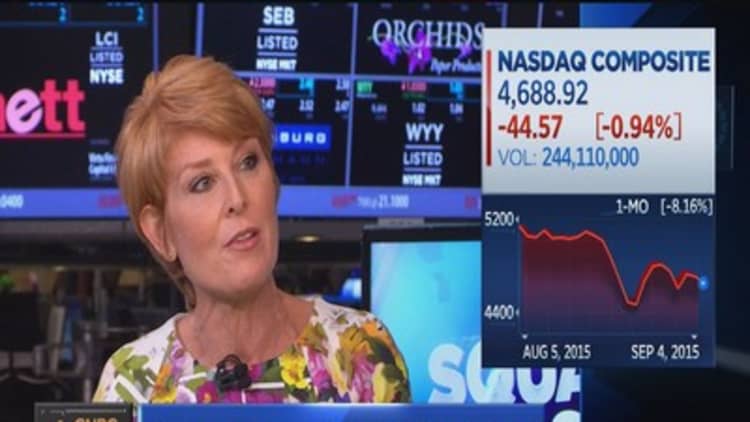
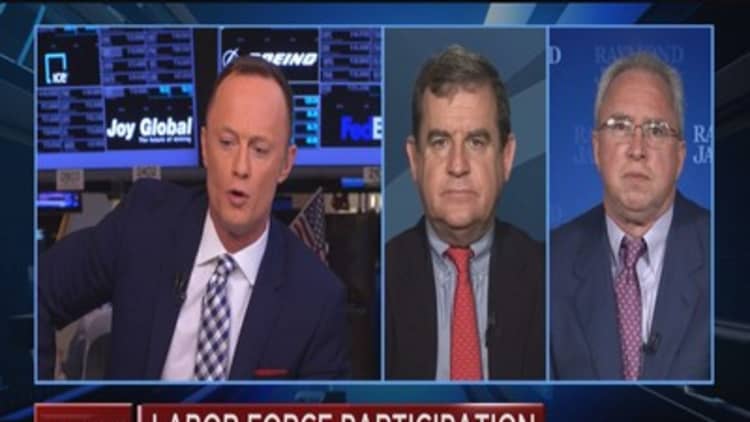
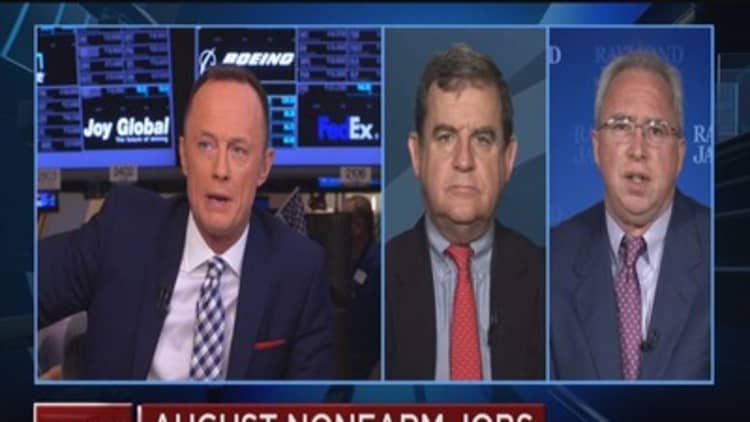
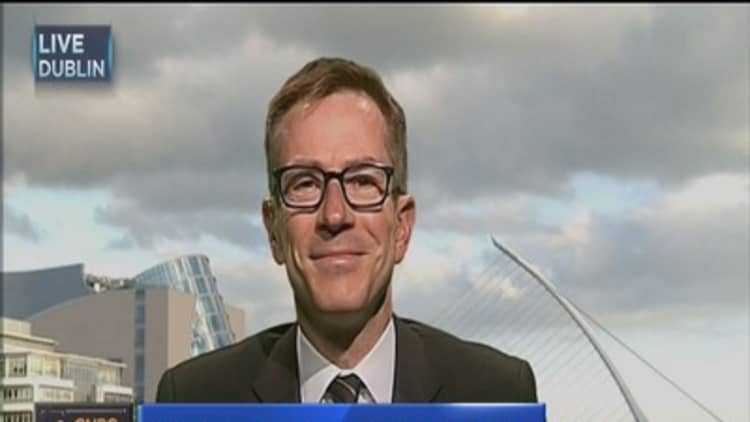
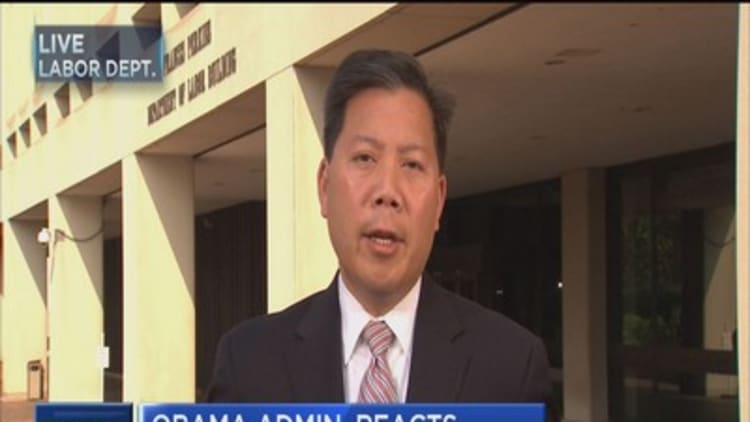
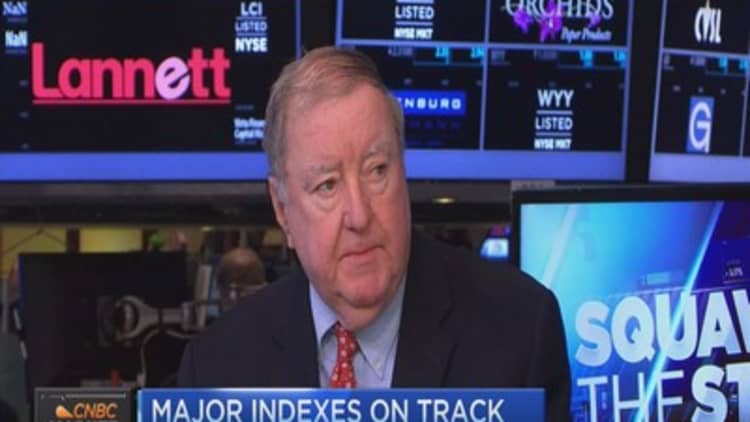
David Kelly of JPMorgan Funds had a very clear message for the Federal Reserve on Friday: hike rates in two weeks.
"If we don't raise rates now, we're going to be stuck in this stagnation equilibrium that has haunted Japan for over 20 years. It is wrong to keep rates at this very low level in a basically healthy economy," the firm's chief global strategist said in an interview with CNBC's "Squawk on the Street."
Kelly made his remarks after the Bureau of Labor Statistics released August nonfarm payrolls, which showed the U.S. economy added 173,000 jobs, below the expected 220,000.
Nevertheless, he said that this is still a strong number, given the fact that the August jobs report numbers are often revised up the next month.
"It's a whole flurry of factors. One of them is when do schools start and when they take the survey, and they often miss that government employment in the first cut," said Diane Swonk, Mesirow Financial's chief economist, in the same interview.
The numbers released Friday also give the Fed more reasons in justifying a rate hike sooner rather than later, Scott Brown, chief economist of Raymond James, said in another "Squawk on the Street" interview.
"Those [factors] are the sharper drop in unemployment and the increase in average hourly earnings, which was slightly ahead of expectations," Brown said.
The unemployment rate fell to 5.1 percent from 5.3 percent, while the average hourly wage for workers ticked up 0.3 percent.
"In the last year, the number of workers has grown three times as fast as the labor force, and that to me is the definition of a tightening labor market, so I think it is past time [to raise rates]," Kelly said. "I think they probably will raise rates [in September] because, to not raise rates now would be to go back really on everything they've been saying about being data dependent."
"These data suggest a tightening labor market and therefore they should move."
The central bank's timing on boosting interest rates has recently come into question as financial markets around the globe have experienced increased volatility.
In fact, the (VIX), has risen more than 100 percent in the last month.
VIX in the last month
"We've done some technical damage to the market. Most of the decline is in the rearview mirror, but we're not going to V-bottom and go straight back up. We need to heal," Bob Doll, chief equity strategist at Nuveen Asset Management, told "Squawk on the Street."
Still, Doll added that this latest round of market volatility should not deter the Fed from raising rates for the first time in nearly a decade.
"At the end of the day, the Fed will look at those labor numbers and everything else they've been looking at and say, 'Our starting number is zero' and they will move forward to raising rates," he said.
Regarding the Fed's timing, Swonk said, "We're all splitting hairs."
"Whether it's September or December, it doesn't matter; what matters is the glide path," she said. "The threshold for the second and third rate hike is going to be significantly higher than liftoff."
—Reuters contributed to this report.






